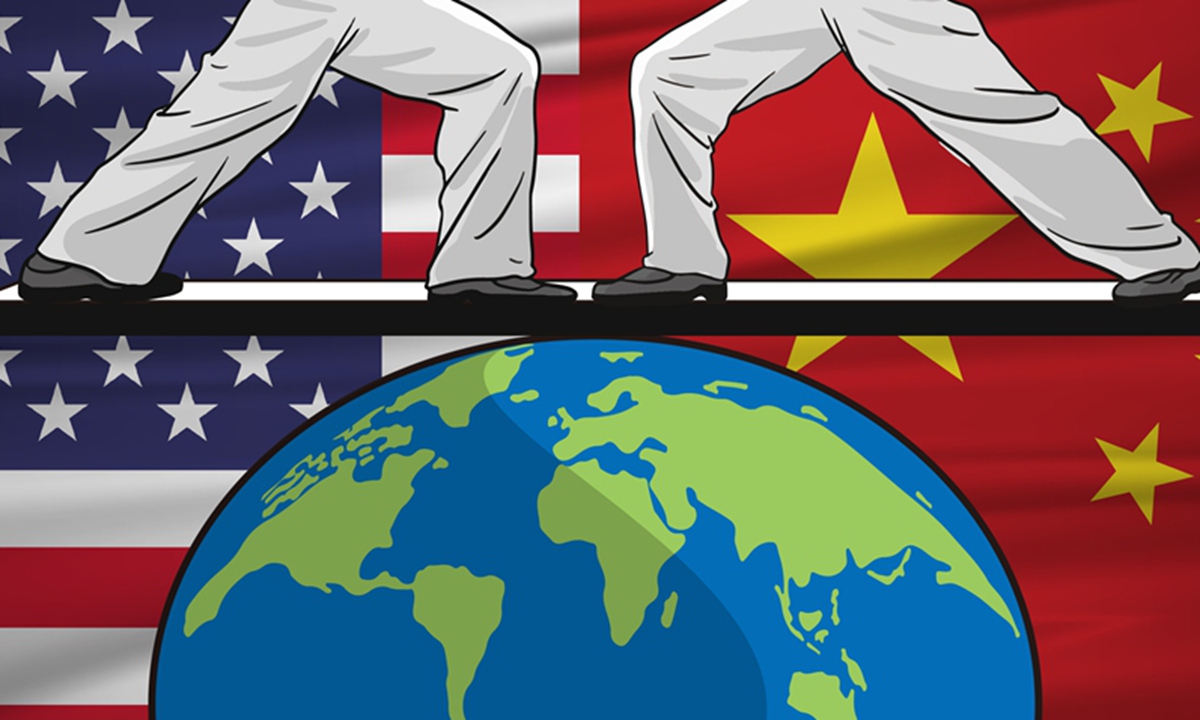
China US Photo: GT
To deal with the US’ Indo-Pacific Strategy that targets China, China should try to stimulate the potential for regional economic cooperation, increase countries’ interdependence in the region and pay more attention to promote anti-virus cooperation in the context of the raging COVID-19 pandemic, Chinese experts said at an online seminar themed on analyzing different countries’ Indo-Pacific strategies on Saturday.
At the seminar organized by the Global Engagement Academy of Shandong University, Weihai, ten Chinese scholars discussed via video links the nature and purpose of the US’ Indo-Pacific Strategy, different countries’ attitudes toward the strategy and offered suggestions on how China should respond to it.
Jia Wenshan, dean of the Global Engagement Academy, said the American elites hope the 21st century will be the American Century and the Indo-Pacific Strategy in essence is a strategy to sustain US hegemony in Asia and draw in countries including India to contain China’s rise and prevent it from becoming a new center of power in Asia.
The participating scholars did not agree that the US’ Indo-Pacific Strategy could lead to an extensive potential alliance network against China. Japan, India and Australia are currently the main pillars of the US Indo-Pacific Strategy, but their attitudes toward the strategy differ. Australia has now actually stood at the forefront of the US’ Indo-Pacific Strategy, Yu Lei, chief research fellow at the research center for Pacific island countries at Liaocheng University, said. He noted that because Australia believes its prosperity and security relies on the US, it has in fact acted as an active promoter, advocate and constructor of the US Indo-Pacific Strategy.
Wang Pengquan, an assistant research fellow with the Institute of Contemporary Socialism at Shandong University, said that compared with Australia, Japan and India have different views on the US strategy that emphasizes too much on geopolitical and military confrontation. Many observers in the two countries don’t want to mix the free and open Indo-Pacific vision with a strategy that is aimed at containing China together, Wang stressed.
Guo Baogang, a professor in the Social Science Department at Dalton State College, said that Southeast Asia is a key region to the Indo-Pacific Strategy, but it is unwilling to take sides between China and the US. In the absence of common values in the Indo-Pacific region, it’s also unlikely to form a political and military alliance similar to NATO in the region, Guo noted.
Therefore, experts agree that attempts by the US to suppress and contain China with the Indo-Pacific Strategy are unable to thwart China’s development. Compared with the US, China has possessed closer historical, cultural and economic links with Indo-Pacific countries, and it has a strong will to cooperate with them, experts said. He Weiwen, a former senior trade official and an executive council member of the China Society for World Trade Organization Studies, said that the best way for China to break the US containment attempt is to develop extensive cooperation with regional countries. Wang also suggested that China should strengthen cultural and media exchanges with regional countries in addition to downplaying ideological differences in cooperation and exchanges.
Global Times
